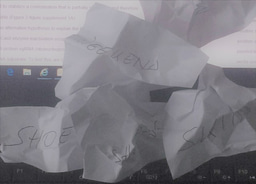Failure is the staff of life for scientists

Listening to a lecture at a Conference or to the talk of an invited speaker in your home institution you are fascinated and almost envious. An interesting scientific question at the beginning, a brilliant approach combining methods from various fields, an expected outcome or very reasonable explanations why not, and a conclusion explaining all results, published and yet unpublished. All seems so logical, so straightforward and convincing.
After some years in research you realize this is not at all the everyday experience. Who hasn’t encountered an inability to reproduce published experiments or earlier results from their own lab, not to mention unexpected outcome from work on your own bench? At first, these experiences are considered failures, real failures, after which you may feel very bad or regard yourself as not cut out for success. Day after day on the bench things do not work out as expected. Frustration grows, and soon the fascinating side of doing research is darkened. Generally, scientists can really take a lot, but some indeed leave research for good.
This is not a new phenomenon. Some people are brave enough to speak out about their experiences, providing good examples how to cope with failure. Just have a look using Google and the keyword “failure in science” or “failed experiments” and click through the articles or editorials. Practical tips like “take care of yourself” or “ask for help” (https://www.sciencemag.org/careers/2007/02/mastering-your-phd-dealing-setbacks) may in some situations even rouse your fury, but you could just as well look at other stories about this subject, such as ‘Growth from failure’ in sciencemagazin or
https://blogs.scientificamerican.com/guest-blog/failure-in-science-is-frequent-and-inevitable-and-we-should-talk-more-about-it/. After all, we should keep in mind that ‘Scientific progress is built on failure’. Would you be willing to share your experiences of how to cope with failures with the FEBS Network community?




Join the FEBS Network today
Joining the FEBS Network’s molecular life sciences community enables you to access special content on the site, present your profile, 'follow' contributors, 'comment' on and 'like' content, post your own content, and set up a tailored email digest for updates.
Setback can truly darken our times... Just after my return from being a FEBS LTF I have spent almost 3 challenging years with setting up a new BacMAM lab, purify protein and measure it. I am not saying sometimes I had not thought of simply quit and open a grocery store or make some graphics online whatever that would make me instantly happy, but then I went on. I guess classical psychology might help in such situations, saying that beyond a certain point you just run around the same thoughts, you have to break out and reach out to people, experts, even outsiders. I visited my FEBS LTF supervisor, also asked help form my current PI and finally convinced him to install collaboration with a foreign lab. I went to that very site and watched a postdoc every minute doing his thing and made notes of everything. It actually was not even quite clear afterwards what was fundamentally wrong with our approach, a bad (though commercial!!) plasmid, not the quite reagent, different cell lines, whatever but at the end it just started to work... Such a relief. Do not be shy, ask for help, sometimes you are doing all good and yet the problem lies in some irrational details.
Right you are, Andras, and I'm very glad for sharing your experience with us. Bright sides of research and successes are displayed all too often hiding the truly remarkable quality of good scientists: Endurance.